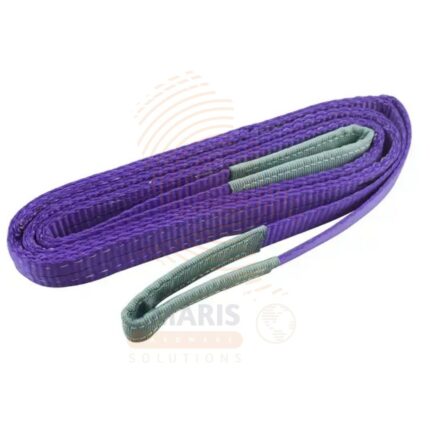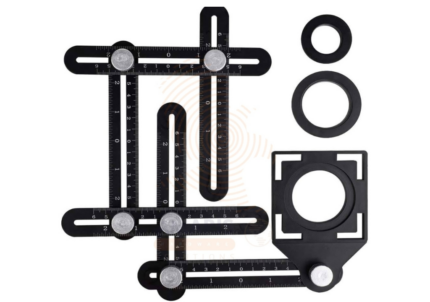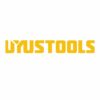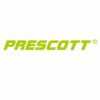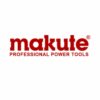Block Macking Machine
WhatsApp Order
A Block Making Machine is a specialized construction equipment designed to produce high-quality concrete blocks, bricks, and pavers used in building and infrastructure projects. It automates the process of mixing, molding, compacting, and curing concrete materials into consistent, uniform blocks of various sizes and shapes. These machines can be manual, semi-automatic, or fully automatic, depending on their level of automation and production capacity. They are widely used in commercial, industrial, and residential construction projects for producing large volumes of concrete masonry units efficiently.
Description
USES
- Manufacturing concrete blocks for walls, pavements, and fences
- Producing hollow blocks, solid blocks, paving stones, and curbstones
- Creating interlocking blocks for retaining walls and roadways
- Mass production of blocks for commercial and residential construction
- On-site block production to reduce material transportation costs
- Fabricating colored or decorative concrete blocks for aesthetic finishes
- Supporting low-cost housing projects through localized production
- Making heat-resistant and soundproof blocks for specialized structures
- Creating foundation blocks for civil engineering applications
- Producing blocks for boundary walls, partitions, and utility buildings
- Used in municipal projects for sidewalks and urban development
- Creating ventilated blocks for enhanced airflow in buildings
- Suitable for rural or remote construction sites with limited access to supply chains
Used in eco-friendly building solutions by incorporating recycled materials
SAFETY HANDLING PRECAUTIONS
- Wear Personal Protective Equipment (PPE)
- Use safety goggles to protect eyes from dust and debris
- Wear gloves to prevent hand injuries during material handling
- Use ear protection if working with high-noise machines
- Wear safety boots and durable clothing on-site
- Read and Follow the User Manual
- Familiarize yourself with machine controls, emergency stops, and operational guidelines
- Follow manufacturer recommendations for setup, maintenance, and troubleshooting
- Check Equipment Before Use
- Inspect hydraulic systems, electrical components, and molds for wear or damage
- Ensure all safety guards and sensors are functional
- Use Proper Lifting Techniques
- Handle raw materials and finished blocks using correct posture or mechanical aids
- Keep Work Area Clean
- Remove debris and concrete spills to prevent slips and trips
- Maintain clear access around the machine for safe operation
- Avoid Manual Contact with Moving Parts
- Never reach into the machine while it is running
- Use tools or sticks to dislodge material jams
- Operate with Trained Personnel Only
- Ensure operators are trained in machine operation and emergency procedures
- Perform Routine Maintenance
- Regularly lubricate mechanical parts and clean molds
- Replace worn parts to prevent accidents or malfunctions
- Avoid Overloading the Machine
- Do not exceed the capacity specified by the manufacturer to prevent breakdowns or injury
- Use in a Well-Ventilated Area
- Ensure adequate airflow if using chemicals or additives with the concrete mix
Related products
Box Beam Spirit Level Pro – Magnetic
PRODUCT DESCRIPTION
A Box Beam Spirit Level Pro with Magnetic Base is a precision hand tool used for measuring the levelness and plumbness of surfaces. Its rigid box-shaped aluminum body provides durability and stability during use. The tool contains liquid-filled vials with air bubbles to indicate horizontal, vertical, and 45-degree angles. The magnetic base allows for secure attachment to metal surfaces, enabling hands-free operation. This level is essential in construction, carpentry, metalworking, and any tasks requiring accurate surface alignment.
Concrete Mixer
PRODUCT DESCRIPTION
A concrete mixer is a vital construction machine designed for perfectly blending cement, aggregates (such as sand and gravel), and water into high-quality concrete. It features a rotating drum on a sturdy frame—either powered by electricity, gas, or manually—that keeps the mixture in a homogenous, workable state to ensure consistency with each batch. Concrete mixers mitigate manual labor, speed up work, and guarantee a uniform concrete mix suitable for foundations, slabs, pillars, beams, driveways, and more. Variants include portable barrel mixers for small projects and large-capacity tilt or drum mixers for commercial use, ensuring proper mixing, reducing waste, and improving overall construction efficiency.
Fiberglass Open Reel Long Tape Rule
PRODUCT DESCRIPTION
A Fiberglass Open Reel Long Tape is a measuring tool designed for accurately determining distances in various applications, such as construction, surveying, and landscaping. It typically consists of a durable, flexible fiberglass tape housed on an open reel. The fiberglass material provides strength and resistance to stretching, ensuring precise measurements over extended lengths. The open reel design allows for easy deployment and retraction of the tape, facilitating efficient use in outdoor and large-scale measurement scenarios. These tapes often feature clear and legible markings, making them suitable for both personal and professional use in situations where accurate and reliable distance measurements are essential.
Flat Webbing Slings
A flat webbing sling is a flexible and durable lifting or towing device made from a flat strip of synthetic material, typically polyester, nylon, or polypropylene. These slings are designed for various material handling applications, such as lifting and securing loads in construction, manufacturing, and transportation industries. The flat design allows for a wide surface area, distributing the load evenly and reducing the risk of damage to the load. Flat webbing slings often feature reinforced loops at each end for attachment to lifting equipment, providing a versatile and reliable solution for lifting and moving heavy objects.
Professional Manual Tile Cutter
A professional manual tile cutter is a specialized tool designed for accurately and cleanly cutting ceramic or porcelain tiles during the installation process. It typically consists of a sturdy base, a scoring wheel or blade, and a handle. The user places the tile on the cutter, scores a line on the surface of the tile using the cutting wheel, and then applies pressure to break the tile along the scored line. Professional manual tile cutters are known for their precision, efficiency, and the ability to produce clean and straight cuts, making them essential for professional tile installers and DIY enthusiasts working on tiling projects.
Putty Knife – Bi Material Handle
A putty knife with a bi-material handle refers to a tool used for scraping and spreading putty, filler, or other materials, featuring a handle made from two different materials. The bi-material handle typically incorporates a combination of materials such as rubber, plastic, or another soft and comfortable grip material for ergonomic handling, along with a more rigid material for durability and structural support. This design aims to provide users with a comfortable grip while ensuring the tool remains sturdy and effective for its intended purposes.
Six Sided Angle Measuring Tool
A Six Sided Angle Measuring Tool, commonly known as a hexagonal protractor, is a geometric instrument with six equal sides and six internal angles, each measuring 120 degrees. This tool is specifically designed to facilitate the measurement and drawing of angles in various applications, such as geometry and engineering. The angles are typically marked or calibrated along the edges, allowing users to accurately determine and replicate specific angular measurements during drafting or other precision tasks.
Tile Grout Float
A tile grout float is a tool used in the process of installing ceramic or stone tiles. It typically consists of a flat, rectangular or square-shaped rubber or foam pad attached to a handle. The purpose of a tile grout float is to apply and spread grout into the joints between tiles. The flat surface of the float helps ensure an even distribution of grout and allows for effective filling of spaces between tiles. After the grout is applied, excess grout can be wiped away with the edge of the float. Overall, a tile grout float is an essential tool for achieving a clean and professional finish when grouting tile installations.


 Acrylic Sealants
Acrylic Sealants Construction Adhesives
Construction Adhesives Double-Sided Tape
Double-Sided Tape Duct Tape
Duct Tape Electrical Tape
Electrical Tape Epoxy & Resins
Epoxy & Resins Masking Tape
Masking Tape
 Automotive Wrenches & Socket Sets
Automotive Wrenches & Socket Sets Battery Chargers & Jump Starters
Battery Chargers & Jump Starters Car Jacks & Stands
Car Jacks & Stands Car Wash & Detailing Products
Car Wash & Detailing Products Diagnostic Tools
Diagnostic Tools Tire Inflators
Tire Inflators Vehicle Lighting
Vehicle Lighting Oil & Lubricants
Oil & Lubricants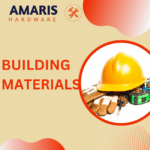
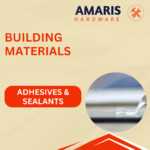 Adhesives & Sealants
Adhesives & Sealants Bricks & Blocks
Bricks & Blocks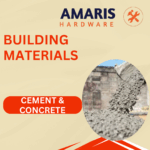 Cement & Concrete
Cement & Concrete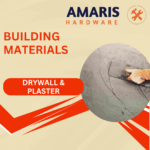 Drywall & Plaster
Drywall & Plaster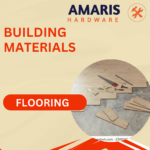 Flooring (Tiles, Wood, Laminate)
Flooring (Tiles, Wood, Laminate)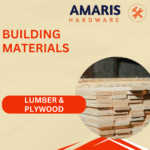 Lumber & Plywood
Lumber & Plywood Paints, Primers & Coatings
Paints, Primers & Coatings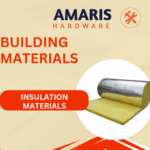 Insulation Materials
Insulation Materials Roofing Materials
Roofing Materials
 Circuit Breakers
Circuit Breakers Electrical Cables & Wires
Electrical Cables & Wires Switches & Sockets
Switches & Sockets Fuses & Relays
Fuses & Relays Connectors & Terminals
Connectors & Terminals Electrical Boxes & Panels
Electrical Boxes & Panels Conduit & Fittings
Conduit & Fittings Lighting Fixtures & Bulbs
Lighting Fixtures & Bulbs Extension Cords & Power Strips
Extension Cords & Power Strips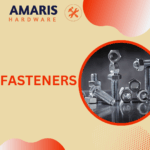
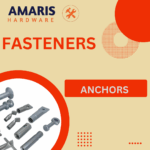 Anchors
Anchors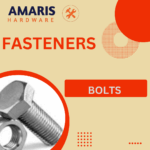 Bolts
Bolts Clips & Clamps
Clips & Clamps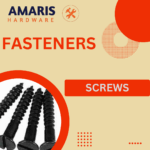 Screws
Screws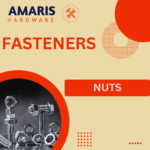 Nuts
Nuts Washers
Washers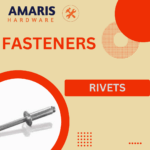 Rivets
Rivets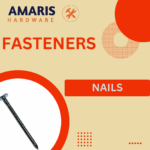 Nails
Nails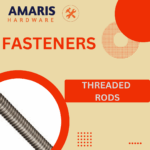 Threaded Rods
Threaded Rods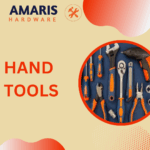
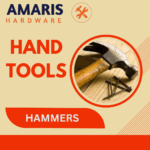 Hammers
Hammers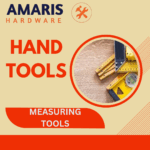 Measuring Tools (Tapes, Levels, Calipers)
Measuring Tools (Tapes, Levels, Calipers) Screwdrivers
Screwdrivers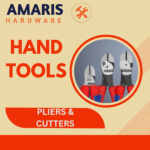 Pliers & Cutters
Pliers & Cutters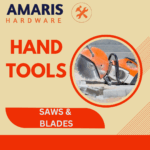 Saws & Blades
Saws & Blades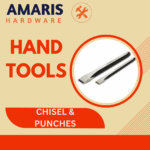 Chisels & Punches
Chisels & Punches Allen Keys & Hex Keys
Allen Keys & Hex Keys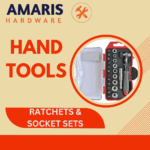 Ratchets & Socket Sets
Ratchets & Socket Sets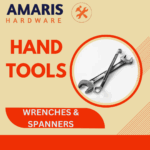 Wrenches & Spanners
Wrenches & Spanners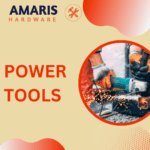
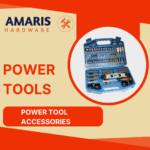 Power Tool Accessories (Blades, Bits, Discs)
Power Tool Accessories (Blades, Bits, Discs)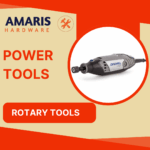 Rotary Tools
Rotary Tools Saws (Circular, Jigsaw, Reciprocating)
Saws (Circular, Jigsaw, Reciprocating)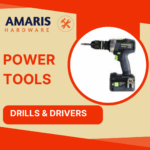 Drills & Drivers
Drills & Drivers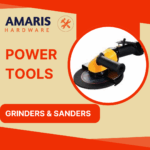 Grinders & Sanders
Grinders & Sanders Heat Guns
Heat Guns Nail Guns
Nail Guns Impact Wrenches
Impact Wrenches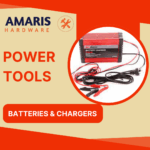 Batteries & Chargers
Batteries & Chargers
 Pipes & Fittings (PVC, Copper, PEX)
Pipes & Fittings (PVC, Copper, PEX) Plumbing Tools
Plumbing Tools Pumps & Motors
Pumps & Motors Sealants & Adhesives for Plumbing
Sealants & Adhesives for Plumbing Valves & Taps
Valves & Taps Water Heaters
Water Heaters Drainage Systems
Drainage Systems Faucets & Fixtures
Faucets & Fixtures Hoses & Tubing
Hoses & Tubing
 Hinges & Latches
Hinges & Latches Hooks & Brackets
Hooks & Brackets Window Hardware
Window Hardware Chains & Cables
Chains & Cables Casters & Wheels
Casters & Wheels Shelving & Storage Systems
Shelving & Storage Systems Door Handles & Locks
Door Handles & Locks Drawer Slides & Cabinet Hardware
Drawer Slides & Cabinet Hardware
 Personal Protective Equipment (PPE)
Personal Protective Equipment (PPE) Respirators & Masks
Respirators & Masks Safety Glasses
Safety Glasses Safes
Safes Security Cameras
Security Cameras Gloves
Gloves Helmets
Helmets Ear Protection
Ear Protection Fire Safety Equipment
Fire Safety Equipment Locks & Padlocks
Locks & Padlocks Motion Sensors & Alarms
Motion Sensors & Alarms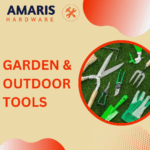
 Garden Fencing
Garden Fencing Garden Furniture Hardware
Garden Furniture Hardware Lawn Mowers
Lawn Mowers Trimmers & Edgers
Trimmers & Edgers Shovels & Spades
Shovels & Spades Rakes & Hoes
Rakes & Hoes Pruning Shears & Loppers
Pruning Shears & Loppers Watering Systems (Hoses, Sprinklers, Nozzles)
Watering Systems (Hoses, Sprinklers, Nozzles)
 Interior Paints
Interior Paints Paint Brushes & Rollers
Paint Brushes & Rollers Paint Strippers & Thinners
Paint Strippers & Thinners Paint Trays & Accessories
Paint Trays & Accessories Exterior Paints
Exterior Paints Spray Paints
Spray Paints Primers & Undercoats
Primers & Undercoats Varnishes & Stains
Varnishes & Stains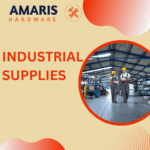
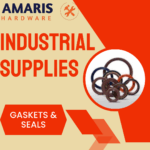 Gaskets & Seals
Gaskets & Seals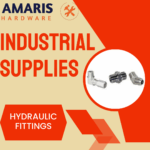 Hydraulic Fittings
Hydraulic Fittings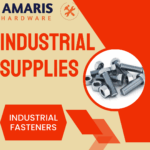 Industrial Fasteners
Industrial Fasteners Industrial Hoses
Industrial Hoses Lubricants & Greases
Lubricants & Greases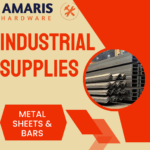 Metal Sheets & Bars
Metal Sheets & Bars Bearings & Bushings
Bearings & Bushings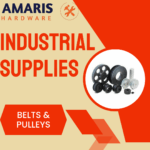 Belts & Pulleys
Belts & Pulleys
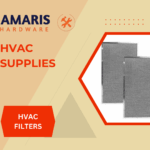 HVAC Filters
HVAC Filters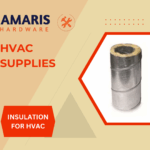 Insulation for HVAC
Insulation for HVAC Air Conditioners
Air Conditioners Refrigerants
Refrigerants Ventilation Ducts & Fittings
Ventilation Ducts & Fittings Thermostats & Controllers
Thermostats & Controllers Fans & Blowers
Fans & Blowers
 Pegboards & Hooks
Pegboards & Hooks Shelving Units
Shelving Units Storage Bins & Containers
Storage Bins & Containers Toolboxes & Tool Chests
Toolboxes & Tool Chests Workbenches
Workbenches Drawer Organizers
Drawer Organizers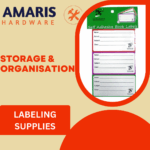 Labeling Supplies
Labeling Supplies
 Welding Accessories (Clamps, Brushes)
Welding Accessories (Clamps, Brushes) Welding Electrodes & Rods
Welding Electrodes & Rods Welding Helmets & Gloves
Welding Helmets & Gloves Welding Machines
Welding Machines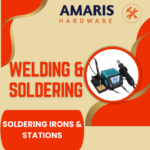 Soldering Irons & Stations
Soldering Irons & Stations Flux & Solder Wire
Flux & Solder Wire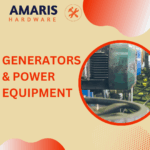
 Generator Accessories
Generator Accessories Inverters
Inverters Portable Generators
Portable Generators Power Inverters
Power Inverters Transfer Switches
Transfer Switches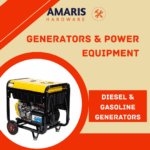 Diesel & Gasoline Generators
Diesel & Gasoline Generators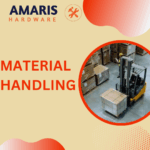
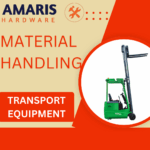 Transport Equipment: Carts, Dollies, and Hand Trucks
Transport Equipment: Carts, Dollies, and Hand Trucks Storage Solutions: Pallets, Racks, and Containers
Storage Solutions: Pallets, Racks, and Containers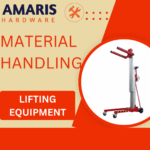 Lifting Equipment: Hoists, Cranes, and Jacks
Lifting Equipment: Hoists, Cranes, and Jacks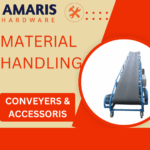 Conveyors and Accessories: Belts and Rollers
Conveyors and Accessories: Belts and Rollers

